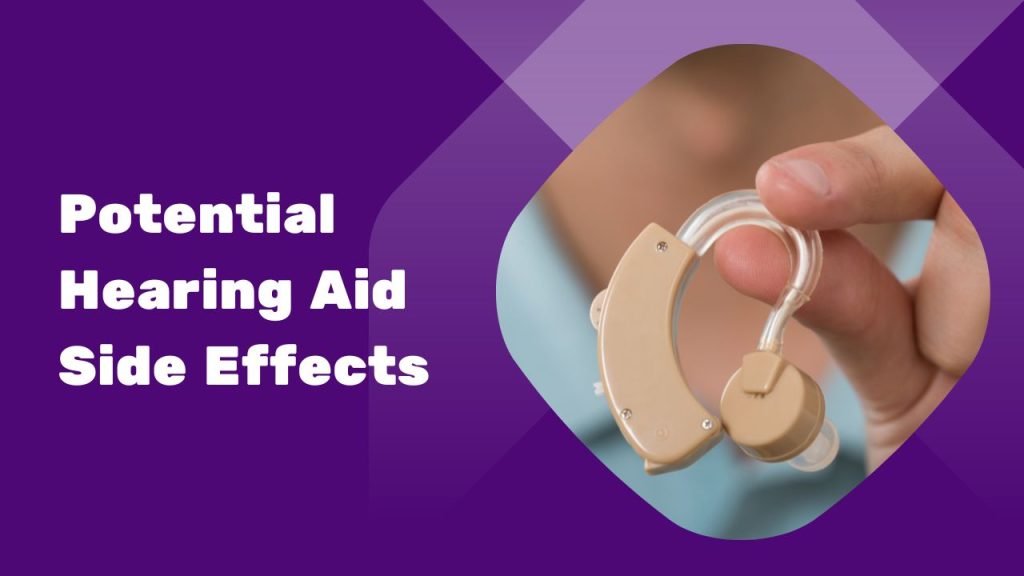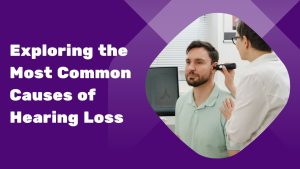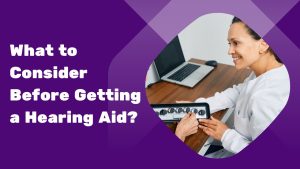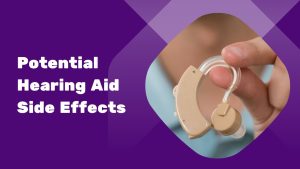If you have experienced hearing loss for a long time and finally have the opportunity to hear again with your hearing aids, it is a wonderful feeling, right! Millions of individuals use properly configured hearing aids with great success every year. You have to understand that experiences with hearing health might differ greatly. Some may experience hearing aid side effects at first. The majority of problems can be fixed by consulting with your hearing care specialist or having your hearing aids properly adjusted.
An audiologist can troubleshoot to discover a hearing aid that fulfills your needs and seamlessly integrates into your lifestyle. In India, people prefer to choose the best hearing aid clinic in Mumbai to make the best deals.
Commonly Reported Hearing Aid Side Effects
What happens once you put on your brand-new hearing aids? You may be getting along well with your assistive technology, experiencing confusion, or even feeling overwhelmed. Whatever you’re experiencing is entirely normal.
It will sound strange at first, but give yourself some time to get used to it. Here we have explained the most common Side Effects of Wearing Hearing Aids.
Headaches
When using a hearing aid for the first time, sounds that were previously muted may seem extremely loud. This adjustment process can take some time. Over time, the brain will learn to filter out sounds that shouldn’t be too loud.
So, this issue will go away even if you occasionally get a headache. But some users adjust their hearing aids too high, which may explain why some things seem louder than they actually are and why some hearing aid users get more headaches than usual.
It is all about how long it does takes for your brain to adjust to a hearing aid. An audiologist can diagnose the issue and provide customers with advice on how to adjust their hearing aid settings.
Feeling Discomfort
Although hearing aids are meant to be comfortable to wear, users occasionally make mistakes when adjusting the devices to fit their ears. The fitting g of the hearing aid should be done carefully to avoid soreness and skin irritation.
If it is done too loosely, the device may slide around the ear. In addition to making sounds harder to hear, a poor fitting can increase feedback from the device, which might irritate your hearing.
Naturally, there are situations in which the users are completely at fault. If the audiology determines that the hearing aid itself is the problem, the necessary adjustments will be made. The audiologist will be available to provide guidance and support to minimize further problems.
Itching
Users with skin disorders like eczema or extremely sensitive ears may feel itchy in the ear canal. Rarely, using the hearing aid may cause itching and make it more difficult to get rid of the itch.
This is not a common Side Effect of a Hearing Aid. Those who experience this condition should consult with their audiologist for better assistance. They may suggest a different style of hearing aid or a calming lotion to relieve the itching.
Sore Ears
Many people still have doubts about is a hearing aid good for health, does it hurts, etc. Wearing hearing aids shouldn’t hurt, even though you might be conscious of them all the time during the first few days or weeks of use.
If your hearing aids are causing you ear pain, you may need a new earmold. An audiologist can create a more comfortable earmold with a fresh impression of your ear.
Problems with the Feedback
Users of hearing aids may occasionally receive feedback from their equipment. For example, in windy conditions, people may hear whistling and crackling sounds. If other electronic equipment interferes with the signal from their hearing aids, they may also experience interference. These occurrences are generally infrequent, but if they do become problematic, an audiologist can identify the cause and provide optimal Solutions for Common Hearing Aid Side Effects to lessen future feedback-related issues.
Tips for Effective Handling of Hearing Aids
Audiologists have a solid understanding on what are the common problems hearing aid users face. To minimize the occurrence of side effects, follow the guidelines mentioned below:
- Make sure you have the appropriate hearing aid for your hearing loss by speaking with your hearing instrument specialist.
- Have it fit perfectly. If it does not fit correctly, this will result in uncomfortable.
- Make sure all the features you require are activated.
- Make sure to thoroughly clean your hearing aid to avoid bacteria and debris accumulation.
- If you have any concerns, consult with your hearing aid professional for a better experience.
Summing up
Although there may still be some Common Hearing Aid Side Effects associated with using these gadgets. Since you can be confident that they are low and controllable with the right upkeep and care.
Also, it is rare for people to discover that the negative effects of correctly fitted hearing aids exceed their benefits, while considering how much they can aid them in their daily activities.
Get your best Hearing Aid consultancy from an expert Audiologist at your home




